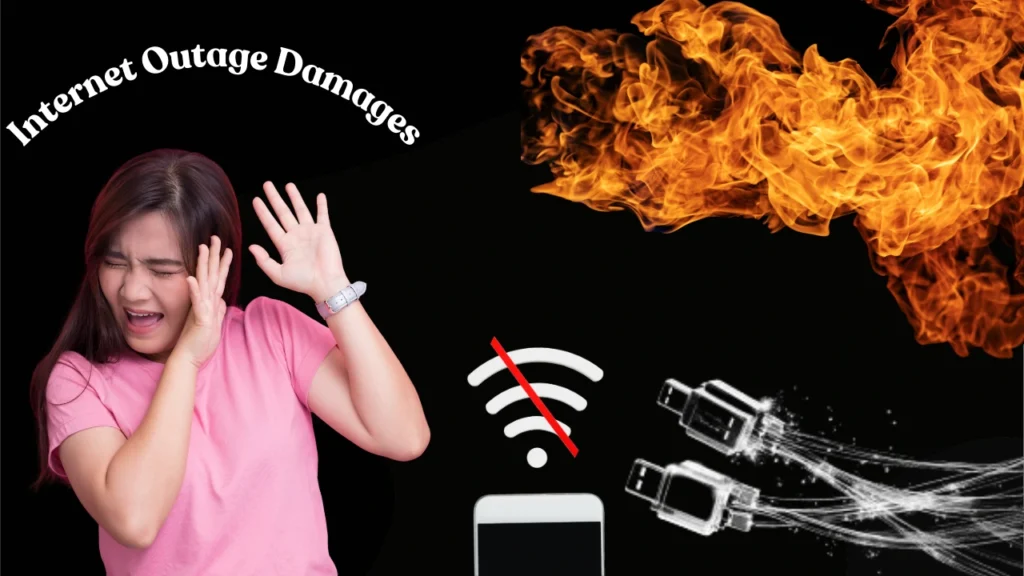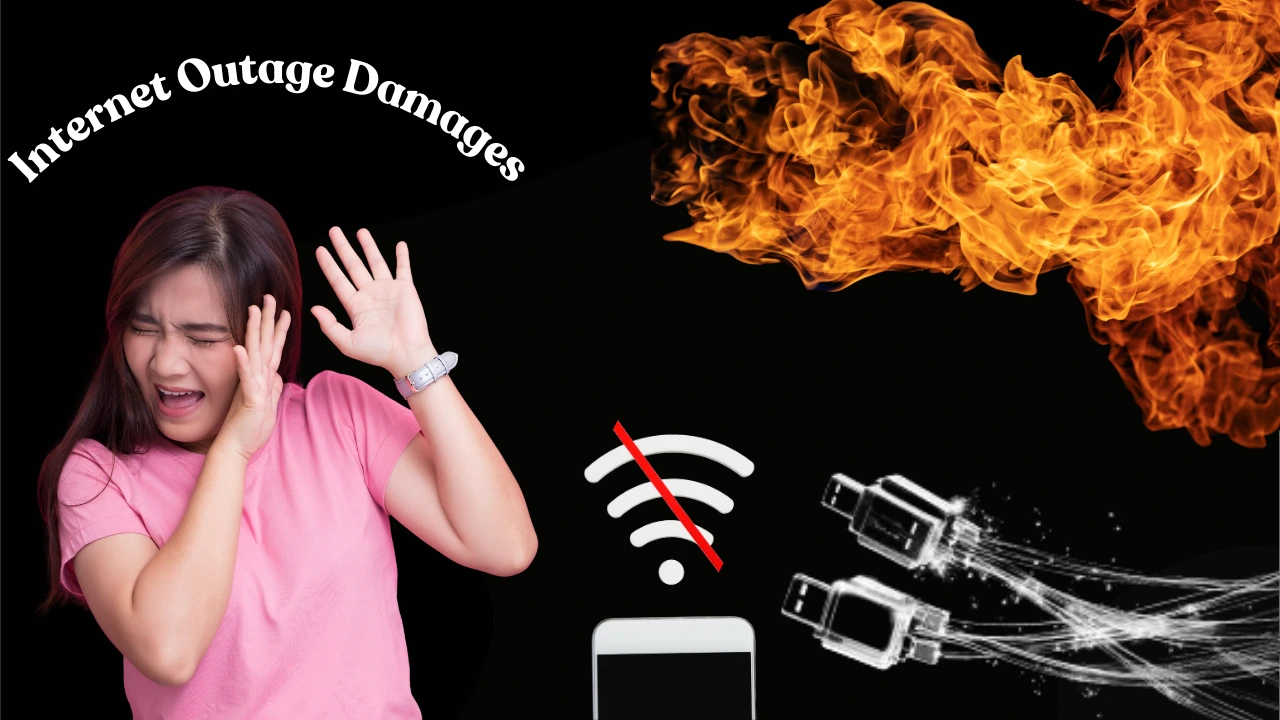Can You Sue for Internet Outage Damages in California?.The internet has woven itself into nearly every aspect of modern life whether for work, education, entertainment, or essential services. So when a sudden outage hits, frustration quickly escalates into real losses: missed deadlines, disrupted business transactions, or even loss of income.
In California, where tech dependence runs especially high, the question often arises: can you actually sue your internet provider for outage damages? The answer is not straightforward. It depends on your service contract, state and federal regulations, and the type of harm you can prove.
Can You Sue for Internet Outage Damages in California?-Overview
| Article on | Can You Sue for Internet Outage Damages in California? |
| Contract Terms | ISPs often limit liability in service agreements. |
| Proof of Loss | You must show real financial harm, not just inconvenience. |
| Cause of Outage | Weather or external events usually don’t qualify. |
| Legal Options | Small claims, arbitration, or FCC complaints. |
| Time Limit | 4 years for written contracts in California. |
What the Law Says: Grounds for Suing
To understand whether suing is viable, you need to look at legal bases under which claims may succeed:
- Breach of Contract
If your internet service provider (ISP) promised a certain level of service (speed, uptime, etc.) in a written or implied contract, and failed to deliver, that is a breach of contract. Under California law (Civil Code § 3300), damages are meant to put you in the position you would’ve been in had the contract been fulfilled. - Negligence / Tort Claims
If an ISP failed to take reasonable care and that failure caused your harm, there might be a negligence claim. However, these are harder because you must prove duty, breach of duty, causation, and actual damages beyond just annoyance or temporary inconvenience. - Consumer Protection & Deceptive Practices Laws
California law has statutes intended to protect consumers from misleading statements or false advertising. For example, an internet provider that advertises “always-on service” yet doesn’t include notice about possible outages might be violating such laws. The “Klein v. AT&T, Inc.” case is a relevant recent class action: a consumer sued AT&T for weeks‐long outages yet being billed as if service were fully delivered. - Net Neutrality / Regulatory Obligations
Laws like the California Internet Consumer Protection and Net Neutrality Act place certain obligations on ISPs—such as transparency about performance, network management, and commercial terms. If your outage arises from unlawful blockage, throttling, or failing to disclose conditions, there may be legal leverage.

Legal Precedents & Case Examples
Real examples illustrate how courts treat these issues.
| Case | Situation | What the Plaintiff Alleged | Outcome / Legal Significance |
| Klein v. AT&T, Inc. (filed Nov 2023) | AT&T customers experienced a weeks-long outage across phone/internet service in California. | Plaintiffs alleged that AT&T misled consumers about reliable coverage, and continued charging for a period when no service was provided. | This is a class action under California’s unfair competition and consumer protection laws. It demonstrates that consumers can challenge ISPs for billing during outages. The case is ongoing. |
| Lopez v. Cequel Communications (Suddenlink) | Customers in certain counties claimed “frequent and prolonged outages” and that their speeds were much lower than promised. | Alleged breach of contract, unfair business practices, lack of refunds. | Shows that consumers are willing to push back via class actions when outages are persistent and the ISP fails to honour promises. |
Key Legal Hurdles & What Can Limit Your Ability to Sue
Even if you think you have a case, there are significant challenges:
- Limitation of Liability Clauses: Many ISP contracts include broad disclaimers that limit or eliminate liability for downtime or consequential damages (e.g. lost wages). Courts will examine whether these clauses are valid, especially if the wrongdoing was intentional or willful. Sometimes, California law invalidates clauses limiting liability for “willful injury” to property or person.
- Proof of Causation: You must show the outage was due to the ISP’s fault—not your equipment, not your location, not external events like storms unless the ISP contract covers those. Also, you must prove that your losses flowed directly from that outage.
- Foreseeability: The damages you seek must have been foreseeable when you entered into the contract. If you didn’t tell the provider that you depend on service for something like remote work or business, courts may limit damages.
- Mitigation: If there was something you reasonably could have done to lessen your loss, courts expect that. For example, using a mobile hotspot, working from another place with the internet, etc.
- Statutes of Limitations: Written contracts often give you 4 years to sue after breach in California. Oral contracts give you less time. If you wait too long, your claim may be barred.
- Cost vs Benefit: Litigation (or arbitration) costs, time, and effort might exceed what you can realistically recover for modest damages.
When You Might Be Able to Sue: Scenarios
Here are situations where suing could be reasonable and likely to succeed:
- Your ISP contract explicitly promises “x% uptime” or “no billing during outages,” but you have evidence the promise was broken.
- You suffered substantial losses (lost income, business, or wages) and you documented them.
- You notified the ISP, tried to remedy the situation, but they failed to do so.
- You are part of a group (class action) where many consumers are similarly harmed this strengthens leverage.
- The outage resulted from negligence or misrepresentation rather than a “force majeure” (natural disaster, extreme weather, etc.) that the contract disclaims.
Final Thoughts
Yes, you can potentially sue for damages stemming from an internet outage in California but your success hinges on many variables: your service contract, what you can prove you lost, how the outage occurred, whether the provider promised certain standards,
and whether legal disclaimers hamper your claim. Many recent class actions show growing consumer willingness to challenge ISPs for failing to deliver promised service or charging during periods of non-service.
FAQs for Can You Sue for Internet Outage Damages in California?
Can I sue my ISP for a short outage?
Usually no, unless it caused significant financial loss and your contract promised uptime.
What if the outage was due to bad weather?
Most contracts exclude “force majeure” events like storms or fires.
Can I join a class action lawsuit?
Yes, if many customers in your area were harmed in the same way.
How long do I have to file a claim in California?
Up to 4 years for written contracts; 2 years for oral ones.
